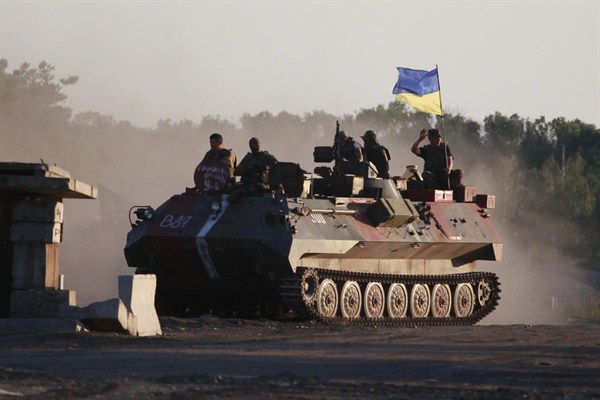Ever since the 2004 “Orange Revolution” that led to its first turn toward the West, Ukraine’s future alignment between Russia and the Euro-Atlantic bloc has been the subject of much debate and speculation. The promise of a durable Western shift, already dimmed by 2010, receded even further under the presidency of Viktor Yanukovych, who tried to steer a middle course between Moscow and Brussels with some success until pressure from Brussels and Moscow, but also Ukraine’s pro-European public opinion, made nonalignment no longer tenable.
Since the Euromaidan protests that drove Yanukovych from power in February 2014 and through the emergence of a Russian-supported separatist insurgency in eastern Ukraine, both optimistic and pessimistic scenarios for the country’s future have been advanced. Although much diminished in recent months, the optimistic scenario assumed that Ukraine’s “civilizational choice” to join the West would be reciprocated by a major Western effort to assist the country in its transition—akin to the resources mobilized a generation ago to help the countries of East and Central Europe rise from the ruins of the Soviet bloc and transform themselves into successful free-market democracies and eventual members of both the European Union and NATO. In this scenario, the new pro-Western government in Kiev would quickly enact critical reforms and jump-start a flagging economy, while concerted Western action would preclude Russia from intrusive meddling.
None of this has materialized. Ukrainians fault the West for limited amounts of aid, even as Western governments, while praising the reform steps that have already been taken, point out that Ukraine still has far to go in transforming its economy and institutions. Russia has not been deterred by the level of sanctions the United States and Europe have been willing to impose. Most importantly, at its recent summit in Riga, the EU pointedly did not offer Kiev a membership perspective—a guarantee that full membership in the EU would be on offer if Ukraine successfully completed all of the necessary reforms.

